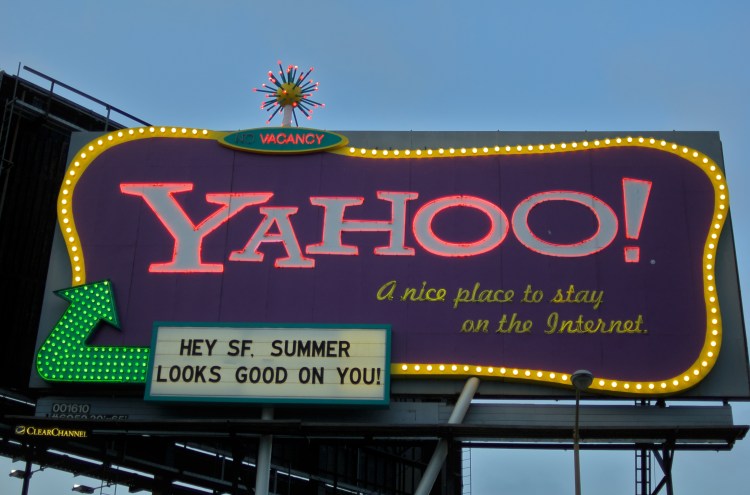Ailing internet giant Yahoo was an early believer of Snap, the parent company of disappearing photo app Snapchat.
As of Monday, nearly two months after Snap’s initial public offering, Yahoo’s stake in Snap is worth about $97.6 million on some 4.6 million shares, according to a Monday filing with the Securities and Exchange Commission. That includes some 2.3 million common shares of Snap, and another 2.3 million shares that are convertible into common shares.
According to people familiar with the matter, Yahoo purchased some 2.3 million preferred Snap shares worth $25 million in 2014. Snap’s board of directors then added another 2.3 million in common stock to that stake in 2016, approving the shares as a dividend to shareholders.
When Yahoo first bought its stake in Snap, it had used a portion of the cash earned from an earlier investment in Alibaba to finance its bet on Snapchat. Speculation was rife then that Snap could be Yahoo’s next Alibaba. And while Snap enjoyed the largest IPO to hit markets since Alibaba, its returns have paled in comparison to what the e-commerce giant brought Yahoo roughly two months after its IPO. While the value of Yahoo’s stake in Snap has roughly quadrupled since it first invested in the company, Yahoo’s stake in Alibaba was 43 times its initial size two months after Alibaba’s IPO.
June 5th: The AI Audit in NYC
Join us next week in NYC to engage with top executive leaders, delving into strategies for auditing AI models to ensure fairness, optimal performance, and ethical compliance across diverse organizations. Secure your attendance for this exclusive invite-only event.
But the fate of Yahoo’s stake in Snap will be the same as its stake in Alibaba. When Verizon finally closes its deal to buy the operational side of Yahoo (which is expected to happen in June), the latter’s investment portfolio, including Snap and Alibaba, will be left behind in an investing company named “Altaba”— an unfortunate portmanteau of “alternative” and “Alibaba.” The funds assets under management will total about $60 billion.
This story originally appeared on Fortune.com. Copyright 2017


